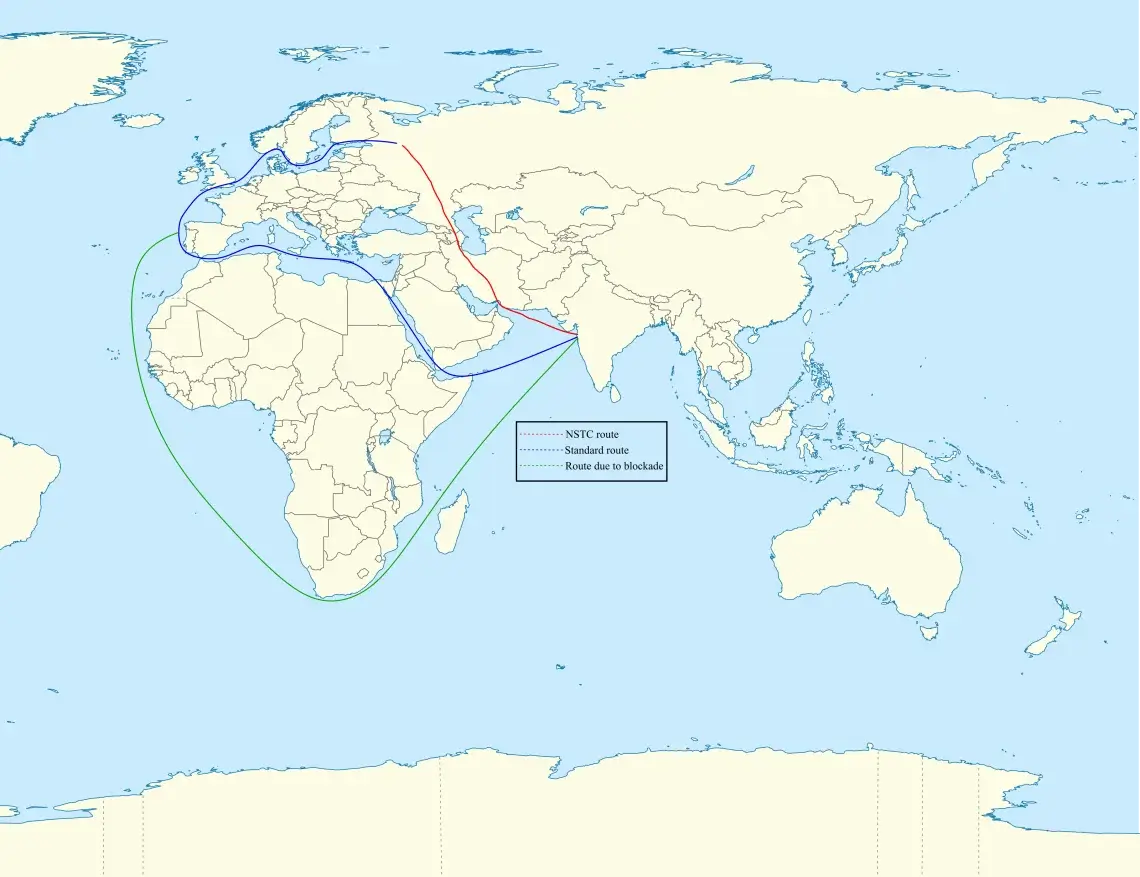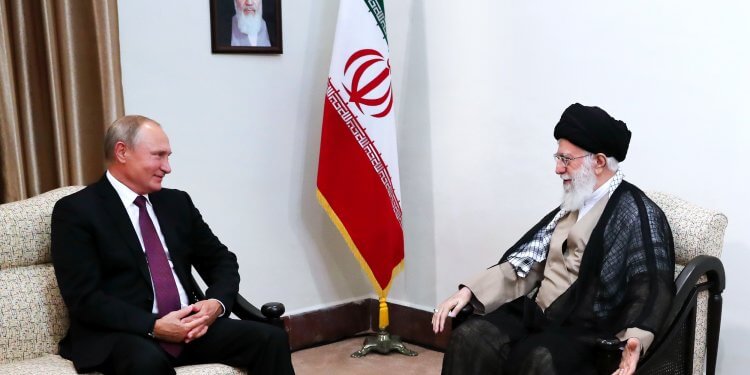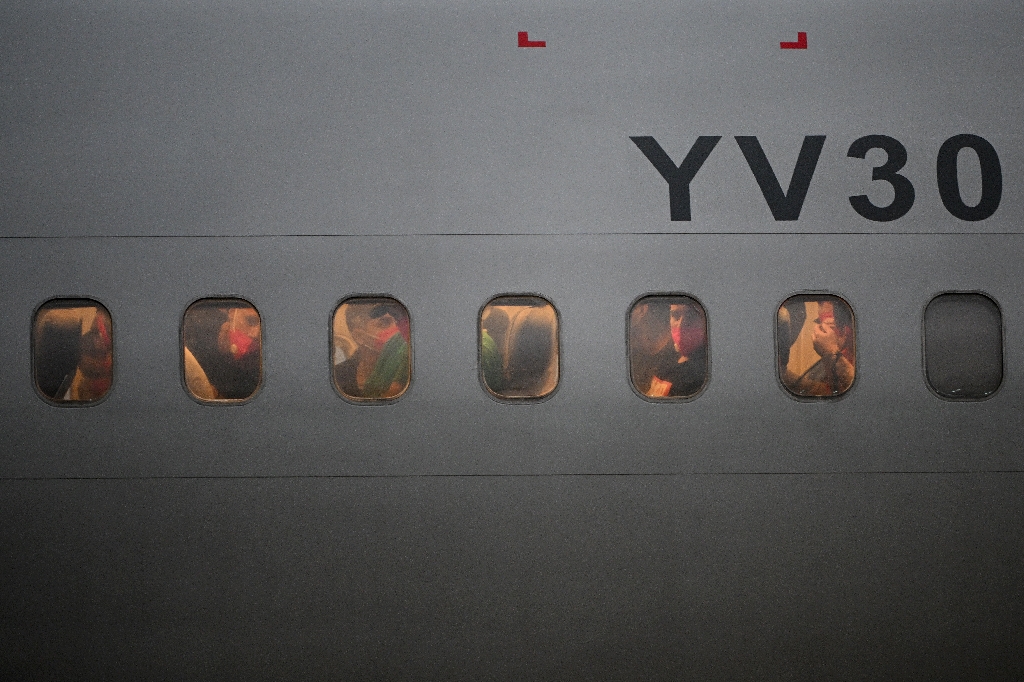The Red Sea crisis officially commenced on October 19, 2023, when Yemeni Houthi rebels launched armed drones at Israel, demanding an end to the ongoing Gaza invasion. Since then, the crisis has only intensified. Houthi rebels have escalated their actions, targeting cargo ships carrying oil, gas, and other goods destined for Israel. Subsequently, they expanded their attacks to include vessels bound for the EU, which the rebels accuse of aiding Israel in what they deem a genocide of the Palestinian people.
Naturally, readers may wonder why a group like the Yemeni Houthi possesses such dangerous armed drones and anti-ship missiles. One doesn’t need to look too far to find the evidence pointing to Iran as the real culprit in this proxy conflict. However, Russia is also involved, albeit not immediately obvious upon first examination.
Naturally, Iran has always sought to position itself as the champion of the Islamic world, believing it can achieve this through funding terror groups and armed militias in other Middle Eastern countries, such as Iraq, Syria, Lebanon, and aiding the infamous Houthi rebels of Yemen. If there is one thing that unites all Muslims regardless of sectarian divisions, it is the Palestinian question. Ever since other Middle Eastern countries like Qatar, the UAE, and Saudi Arabia began negotiations with Israel against the will of their people and the Muslim world in general, Iran has positioned itself as the chief protector of the Palestinian people. Iran aims to present itself as the hero of the Islamic world, fighting what they believe is global US and Israeli hegemony. Such claims are false, but they have increased Iran’s popularity in other Muslim countries and given them the opportunity to present themselves as the leader of all Muslim nations, while also bolstering support for their Shia sect of Islam. This stance has also provided Iran with more leverage in its competition against its key regional rival, Saudi Arabia.
Similarly, the war in Yemen saw Iran-backed Houthi proxies fighting off the UAE-backed coalition, causing both the UAE and Saudi Arabia to lose prestige in the region and eventually leading to a peace agreement with the Houthi rebels, a significant win for Iran. However, the latest Israel-Palestine crisis has once again allowed Iran to utilize its Yemeni proxies to create a blockade of the Red Sea trade route. This blockade increases shipping time by an average of 9 days, further raising the cost of goods in the EU and the rest of Europe, which are already grappling with various protests due to the looming economic crisis and the refugee crisis caused by the Russian invasion of Ukraine.
Naturally, Iran views the EU as a US proxy, and causing further damage to Israel, the EU, and by extension, the US is only seen as a plus for the Iranians. This, of course, favors the Russians. Since Russian President Putin ordered the invasion of Ukraine, Russia has been entrenched in a trench conflict reminiscent of World War I, with the lines barely shifting, often favoring Ukraine. Unlike in 2014, the free world didn’t sit idly by when Putin invaded Ukraine. Instead, Ukraine received hundreds of billions in aid to sustain its economy and military, preventing Putin from completing his land grab invasion, but also severely affecting the Russian economy. Despite initial doubts, Russia has proven more resilient, with its economy bouncing back, while the EU economies are shrinking due to a lack of cheap Russian resources, particularly affecting heavy industries and the agriculture sector reliant on Russian fertilizers. This economic strain has led to a recession in major EU economies like France and Germany, prompting layoffs and farmer protests due to reduced subsidies and diverted funds for the war effort in Ukraine against Russia. However, many fail to grasp the broader implications, as a Russian victory in Ukraine could further destabilize the free Western world. Increased shipping times only serve to bolster Russia’s hopes of prevailing in the Ukrainian conflict.
However, what many fail to notice is that Iran is not the sole supporter of the Houthi rebels in their terror campaign against international shipping; Russia is indirectly supplying them with lethal weapons. The Russians assist Iran in developing more advanced drones, which Iran reciprocates by sending drones to be used against Ukrainians by Russia, as well as by various regional proxies, most of which are allies to both Iran and Russia. Additionally, the Russians have aided Iran in developing hypersonic missile technology, which has recently found its way into Houthi hands. Such advanced weaponry couldn’t have been developed by the Houthi rebels themselves, who lack the expertise for such tasks. Iran ships the missiles to them, with final assembly taking place in Yemen. These rockets pose a significant threat as they could potentially hit and sink expensive NATO and allied naval vessels, further reinforcing the Houthi blockade in the Red Sea. Moreover, this entire endeavor proves costly for NATO, as many oppose the military campaign against Yemen, viewing it as a means to support the Palestinian cause. This sentiment is particularly strong among certain demographics in the US, including the Democratic voter base and the far right, which perceives weakening Israel as a positive outcome. Lacking popular support and concrete results, the military campaign against the Houthi rebels has thus far proven ineffective, allowing the blockade to persist.
With all that said, there is another more sinister and hidden reason as to why this blockade is occurring: it’s due to the International North–South Transport Corridor, which spans from India, through Iran and Azerbaijan, into Russia, and ultimately to the city of Saint Petersburg, where goods can be shipped into Europe. This new route offers significant advantages, being approximately 40% shorter and offering 30% cheaper shipping compared to the traditional route. However, despite its apparent economic benefits, it’s controlled by countries that are not part of the free world and can be expected to disregard internationally established rules. It serves as a means to leverage the new route against the West as a form of financial blackmail.

This strategy mirrors what the Russians aimed to achieve with the NordStream project before it was sabotaged by an unknown group. While the NordStream blow-up operation may have caused immediate economic damage to both Russia and Germany, in the long term, it could be beneficial for Germany. It would make them less reliant on an unreliable partner who could blackmail them, thus threatening the collective security of the EU and potentially causing even greater damage.
Given the current trajectory, with escalating shipping costs and insurance companies increasingly hesitant to engage with vessels using the Red Sea shipping route, the Russian-Iranian alternative appears increasingly lucrative. Several countries have already begun trading through this route, with numerous vessels traveling from Saint Petersburg to Rotterdam in the Netherlands, the largest shipping port in Europe, and their numbers continue to rise. The long-term implications of this shift remain uncertain, but one thing is clear: the Western allies must act swiftly to find a solution. Failure to do so risks handing control of vital shipping routes to adversaries who may exploit them for their own agendas, potentially leaving the West vulnerable in times of need. It’s imperative that decisive action be taken to safeguard Western interests and maintain control over critical maritime passages.
The views expressed in this text are solely those of the author and do not necessarily reflect the views of any organization, institution, or individual mentioned herein.





This is a concerning situation. It’s important for the Western allies to find a solution and maintain control over critical maritime passages.
I don’t understand why Iran and Russia would support the Houthi rebels. It seems like they’re just causing more instability in the region because they share a common interest in countering Saudi influence and expanding their own geopolitical influence.
It’s Sad To See How Conflicts In One Part Of The World Can Have Such A Far-Reaching Impact On The Economy Of The EU. We Need Peaceful Resolutions.
Well, I’m not surprised that Russia is involved in this. They’ve been trying to increase their influence in various regions for a while now.
I think the Houthi rebels just want to protect their people and gain support. It’s a complex situation, and there are always two sides to every story. Hella
I agree with you, there are always two sides to every story. It’s important to consider the motivations and perspectives of the Houthi rebels in this complex situation.
The Houthis are the vicitm here, they have been startved and bombe for 10 years b y the westen colaitlin!
It’s true that the situation in Yemen is quite complex, but let’s not forget that the Houthi rebels have also committed their fair share of violence and attacks. It’s important to look at the conflict from all angles.
Can we please just ALREADY wipe out all of iran? I think the world would be more peaceful without all of them.
While I understand your frustration, it’s important to remember that not all people in Iran share the same views or actions. It’s unfair to generalize an entire country based on the actions of a few. Let’s focus on finding peaceful solutions rather than advocating for violence.